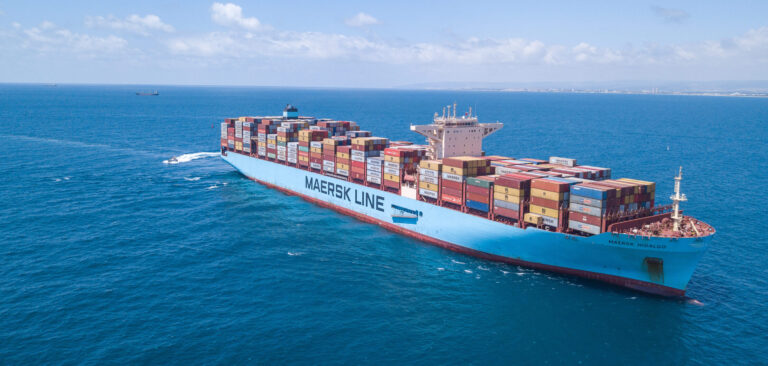To decarbonize its customers’ supply chains, AP Moller – Maersk (Maersk) has entered a green methanol partnership with Carbon Sink, a project developer based in the USA.
A letter of intent was signed between the pair which covers the development of green methanol production facilities in the USA, with the first to be co-located with the existing Red River Energy bioethanol plant in Rosholt, South Dakota. The site is estimated to have a production capacity of 100,000 metric tons per year.
Commercial production at the South Dakota site is expected to begin in 2027, and Maersk has outlined plans to buy the entire volume produced by the site. Maersk will also have the option to buy the output of other Carbon Sink facilities.
Through the use of a commercially available technology, Carbon Sink produces green methanol by combining green hydrogen from electrolysis of water using additional renewable electricity and biogenic CO2. The CO2 required by the first facility will be waste CO2 captured from the Red River Energy bio-ethanol plant.
The partnership marks Maersk’s 8th agreement as the company aims to accelerate the global production of green methanol for use within the maritime sector.
“Securing green fuels at scale in this decade is critical in our fleet decarbonization efforts,” explained Berit Hinnemann, head of green fuels sourcing, AP Moller – Maersk. “We have set a 2040 net zero target for our entire business – but importantly to stay in line with the Paris Agreement, we have also set 2030 targets to ensure meaningful progress in this decade. Partnerships are essential on this journey – and I am very pleased to welcome Carbon Sink on board.”
“We are very pleased to be working with Maersk in support of their mission to decarbonize the shipping sector,” added Steve Meyer, CEO, Carbon Sink. “Carbon Sink brings a vast wealth of knowledge, experience and partnerships to help them achieve their ambitious corporate goals. Our multi-project development strategy creates a pathway for the supply of significant volumes of green methanol to help meet the demand of Maersk’s growing dual-fuel ship fleet.”



